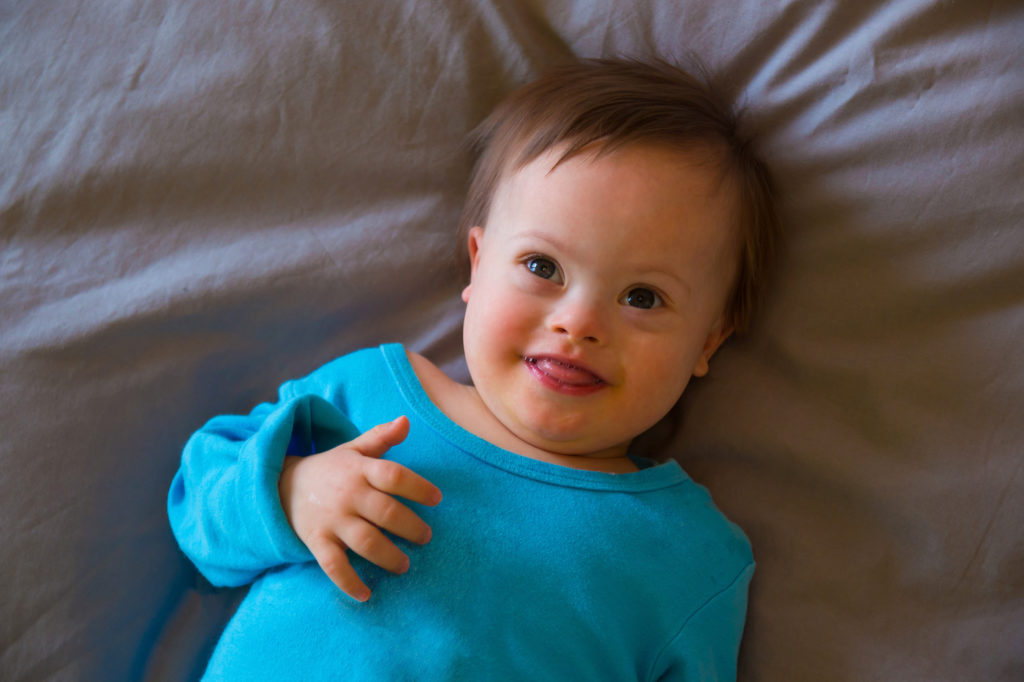It is time for the United States Supreme Court to provide some much-needed clarity to the vexed jurisprudence of abortion that has bedeviled the American public square for nearly forty-six years. Even without revisiting the highly controversial precedents of Roe v. Wade and Planned Parenthood v. Casey, the Court could do some real good by confirming the modest proposition that the Fourteenth Amendment of the US Constitution—originally aimed at advancing the cause of equality among people—does not forbid states from acting to prevent invidious and lethal forms of discrimination against the disabled.
Last month, the Supreme Court garnered attention when it declined to decide whether the Medicaid Act provides individual Medicaid recipients with a right to sue over funding decisions. The suits arose when Kansas and Louisiana withdrew funding from Planned Parenthood after a series of investigative videos showed Planned Parenthood representatives discussing the sale of fetal tissue in graphic, coarse, and shocking fashion. In a dissent from the denial of certiorari, Justice Thomas, joined by Justices Alito and Gorsuch, noted that the cases had “nothing to do with abortion,” but rather a narrow question about whether and how states can condition participation in Medicaid programs. Justice Thomas suggested that the Court may have chosen not to resolve this unsettled legal question merely because the case bore a “tenuous connection to [the] politically fraught issue” of abortion, an approach that disserves lower courts, the states, and Medicaid patients.
This Friday, the Court will have the chance to prove that view wrong as it once again considers whether to review a case affecting abortion in a direct but modest way. The case concerns House Enrolled Act 1337, an Indiana law that prohibits performing abortions solely because the unborn child has Down Syndrome or another disability. The act similarly proscribes sex- and race-based abortion and requires providers to inform women considering abortions of these prohibitions.
Indiana’s law mirrors those passed by Ohio, Louisiana, and North Dakota; several more states have introduced analogous bills. Like other states, Indiana lawmakers wished to curtail the use of prenatal technologies to screen unborn children, which are used to target those with disabilities for termination in a modern-day form of eugenics.
Start your day with Public Discourse
Sign up and get our daily essays sent straight to your inbox.This worry is far from speculative or overblown. In the past few years, Iceland and Denmark have aborted virtually all unborn children prenatally diagnosed with Down Syndrome. The United States does not lag far behind, with rates hovering around 67 percent. Parents around the world have begun to speak out about the widespread medical and social pressure to abort once they receive a diagnosis, and advocates and scholarly literature alike have started acknowledging the negative message that these selective abortions send about the value and equality of individuals with disabilities already living and working in the world. Moreover, these anti-discrimination laws are strongly aligned with much-admired federal laws, such as the Americans with Disabilities Act of 1990, which aims to provide a “clear and comprehensive national mandate for the elimination of discrimination against individuals with disabilities.”
Notwithstanding these weighty concerns, a panel of the Seventh Circuit summarily struck down the law. It concluded that the “non-discrimination provisions clearly violate well-established Supreme Court precedent holding that a woman may terminate her pregnancy prior to viability,” namely, the Court’s seminal decision in Planned Parenthood v. Casey, “and that the State may not prohibit a woman from exercising that right for any reason.” Indiana petitioned for review by the entire Seventh Circuit, which was denied over a thoughtful dissent by Judge Easterbrook. Easterbrook pulled no punches, squarely acknowledging that Indiana’s law aimed at eliminating “eugenic abortions.” He noted that Casey and its progeny only discussed a woman’s right to bear or beget a child, not the right to bear or beget this specific child, especially when that child possesses a characteristic that this country has deemed worthy of special protection time and again to prevent the invidious discrimination that so often plagues our nation. Thus, Easterbrook concluded: “Using abortion to promote eugenic goals is morally and prudentially debatable on grounds different from those that underlay the statutes Casey considered,” and the Seventh Circuit “ought not impute to the Justices decisions they have not made.”
Judge Easterbrook is correct as a legal matter about the meaning of Casey. More importantly, the ramifications of leaving this narrow question unsettled far outstrip those associated with interpretation of the Medicaid Act. Regardless of our nation’s polarized views on the policy and politics of abortion, it is clear that our Constitution does not include a right to abort children merely because of disfavored characteristics. The Seventh Circuit’s erroneous decision gets this basic legal question wrong, and leaves the most vulnerable populations among us, born and unborn, susceptible to the view that we have a “moral duty” to eradicate them, that we are “better off” without them, and that their value can be calculated in dollars and cents.
We have been here before, and history has taught us in the bleakest of terms the chaos and moral depravity that flow from this way of thinking. The stakes associated with the Court’s silence are too high, and it therefore has a duty to correct this error with all haste.













